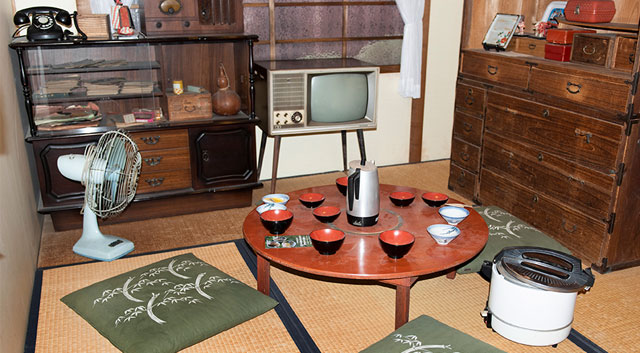How to Overcome the Gap Between Generations (Part 1)
Compass for the future No. 316
Some of the young people in Generation Y, also known as Millennials, feel that they are power harassed or bullied as soon as they are told off, and become arrogant as soon as they are praised. Also, they sometimes don’t understand the boundaries between their public and private matters. How can I guide them?
Excerpt from the lecture titled “The Law of Being A Likable Person (Q & A session)” given at Special Lecture Hall of Happy Science on April 27, 2018

It is quite hard to give a direct answer as it contains many issues. Even in ancient Egypt, there is famous graffiti on the walls of a pyramid stating, “As I’ve thought, young people these days have no manners.” The sight of the elderly deploring the lack of sense shown by the younger generation is something that has remained constant since time immemorial. A new species of human will always emerge.
My generation is considered an old generation. When the Heisei period ended, people born in the previous Showa period were then relegated to be regarded as people born in the older Taisho generation before them.
People in my generation were called “new species” at that time even though we didn’t have personal computers, cell phones, smart phones or CDs. People who lived in such a time were called “new species” then. Today’s people may laugh about it, but we had never seen any such advanced devices. We only had cassette players or tape recorders. If you wanted to listen to music, you had to play a cassette tape that goes around in a player and sometimes it even snapped. Over time, things start to gradually change. It is hard to believe that we were called “new species”.
I lived through the beginning of the economic bubble period after recovering from the recession. The generation before me had to experience the recovery period of postwar devastation. They had to go through poverty and rough times. The GDP per capita right after the war was perhaps the lowest in the world if not zero. People had to crawl their way up from rock bottom. I imagine people in those days couldn’t survive if you were in a daze because life is hard.
I was born in the 1950’s when tuberculosis was still quite prevalent. It was prevalent in the 1940’s, but many people still died of tuberculosis in the 1950’s as well. Tuberculosis is basically caused by malnutrition. If you can get enough nutrition, you will no longer get tuberculosis. Malnutrition was common in those days.
People in those days had a “hungry spirit” in a sense. Because of this, there was no room for sympathy. They needed to crawl back up even if they were beaten and kicked to the point where they couldn’t move anymore, that’s the end of it. They would be kicked into a ditch and rolled around and that’s the end of it, so even if you made a fuss about “power harassment” or “sexual harassment”, it was an everyday occurrence. People in the past experienced such things daily. This way of life makes you wonder “Was there anything else besides power or sexual harassment at that time?”.
As the 1950’s ended and we entered the 60’s, “rights” gradually emerged and became stronger. It was said that the two things became stronger after the war: women and socks. Women’s rights expanded and at the same time, nylon socks became less likely to tear.
In the 1950s, the Vacuum Cleaner, Washing Machine and Refrigerator Were Called the “Three Sacred Treasures”
In my childhood and going into my adulthood, the phrase “three sacred treasures” was often used, which referred to the vacuum cleaner, washing machine and refrigerator. When young people hear this today, they may say, “what!? Vacuum cleaner? Is it for real?”, but it is true. Vacuum cleaner was one of the three sacred treasures.
When I used to visit my aunt who was living in annex, I had never seen her use a vacuum cleaner. Instead, she scattered wet green tea leaves that she used to make her tea onto the tatami floor. As she gathered the leaves, she believed dust on the floor got trapped in them. I believe green tea has antibacterial effects, but I think it is very rare to see a sight like this.
When a vacuum cleaner came into our lives, it went “Vroom vroom” and looked very advanced, but I always wondered if it was blowing the dust back out from behind.
Next is the refrigerator. It is a very useful product. During the new year season in Japan, housewives prepare a lot of food and store it away for about a week. When we didn’t have a fridge, we placed the food by a kitchen window, leaving the window slightly open with a screen so air flowed into the kitchen to prevent the food from going bad.
Third is the washing machine. Before the washing machine, I remember we used a washboard that had a corrugated surface. We put the washboard into a basin with water and detergent, and scrubbed the clothes clean. I am pretty sure that people in India still use this method.
In my lecture, “The Law of being a Likable Person”, I talked about the analogy of “water in a basin”. If you push the water in a basin away from you, the water comes back to you, but if you pull the water towards you, it moves away. This analogy was used by Ninomiya Sontoku, a famous Japanese farmer and philosopher, as well as Konosuke Matsushita, the founder of Panasonics. It occurred to me that I can’t use this analogy with young people anymore because they have never seen a basin before, so they might not understand.
I know of basins first hand because I was delivered in one. I was not delivered at a Obstetrics and Gynecology department in the hospital. My mother suddenly went into labor, so she called a midwife from the neighborhood. She boiled water in a kettle (yes, a kettle!) and poured it into a basin. She added cold water to make it the right temperature and delivered me in the basin. The midwife washed me clean in the basin and picked me up. I cried out loudly, so everyone was relieved to know that I was alive. This is why I used the analogy of “water in a basin” because I experienced it myself.
Young people today may not know a basin, but they know a unit bath, so I might have to use the analogy of “water in a unit bath” from now on. When you push water away from you in a unit bath, the water comes back to you, but if you pull water towards you, it moves away. There is a possibility that people today may not understand if I use the word “basin.”
The washing machine came along when I was in the middle to upper grades of elementary school. But my mother thought the washing machine doesn’t clean the dirty spots on our clothes well enough, so she pulled out the clothes from the machine and scrubbed the dirty spots herself. Looking back today, I think, “How impractical!”. The first washing machines had rollers that were manually operated to squeeze out excess water from clothes. It was a long time ago.

Photo:PIXTA
People Don’t Know How to Use Devices Intergenerationally
In the movie, “Ruroni Kenshin: Kyoto Inferno”, there is a scene where the character Hajime Saito, who was the captain of the third unit of the Shinsengumi, referred to himself as “Fujita”, a policeman who was always smoking cigarettes. I couldn’t help but wonder why they never showed scenes where he lit his cigarette. My guess is that the person who oversaw props in the movie didn’t know how they lit cigarettes back in those days, so they didn’t shoot those scenes. “Did they have a match, or they didn’t?” I don’t think they used stones to ignite the fire. It remains a mystery how they lit their cigarettes.
When I was a child, fathers were smoking cigarettes called “Shinsei” which were rolled in thin paper. I doubt that such cigarettes existed in the Meiji era, but the movie depicted that the character as always smoking cigarettes. I just couldn’t wrap my head around how they lit cigarettes in those days. It remains an unsolved mystery.
As the world is changing and people’s way of living is changing, I think it will be quite difficult for older generations to properly guide newer generations.
For young people, they may wonder why older generations can’t figure out things that they can do. It is quite difficult to mutually understand each other.
I owned a white Nissan Pulser when I was living in Nagoya. The car was automatic, but I only learned how to drive a manual car in driving school. For three years after getting a license, I never drove. One day, I went to a car dealership to test drive on an automatic car even though I’ve never driven one before. The salesman at the dealership got in the passenger seat and I started to drive. I drove one block straight. This salesman got so scared that he wanted to get out, saying “No, no, no I don’t want to die. I have a family so I can’t die. Please practice on your own.” I thought to myself, “He got his money and ran off.” I didn’t know how to drive an automatic car because I didn’t learn how to. Automatic cars move forward automatically. I had a lot of trouble because I couldn’t figure out why the car was running on its own, but sometimes you must do what you never learned.
Everyone uses computers nowadays. When I was in college, there was one giant “super computer” placed under the clock tower in the Komaba campus of Tokyo University. Only the students who majored in statistics and space physics were allowed to use it. I graduated from university without learning how to use a computer. That is the same level as farmers in rural India. Machines were advancing quite rapidly and I couldn’t keep up with the changing speed of technology.
According to a newspaper article I read, young people today don’t know how to dial an old home phone where you pick up the receiver, put your finger on a number, and turn it around. I figured as much. Twenty years ago, everyone carried a pager. I don’t think anyone has one now. The article said that future generations twenty years from now will have no idea how to use the smartphone that we all use now. The pace of technology changing is too fast for me to catch up. Everything may change in ten years.

You Need to Allow Some Things That You Don’t Understand
One day in the early 1990’s, I left Tokyo to give a lecture elsewhere and came back at night, I got home an hour late due to heavy traffic. It is hard to imagine this today but back then, there were no cell phones. I could not call my wife, who just had a baby, to tell her that I would be late. When I came home, I remember her crying.
The difference between now and ten years from now or even five years from now would be a big difference. Also, the average life span has extended so three or four generations are living together in the same era. I think it is necessary to adopt some things even if we don’t understand them.
There are some areas where older people cannot always guide younger people unilaterally. They can give their wisdom and experience, but in the areas that they don’t quite understand, they can ask younger people for their opinions. Then the older person can contemplate on what other people may think of the opinions and whether the young person can take responsibility for the outcome. In the end, you need to guide young people to take responsibility for their own opinions.



















